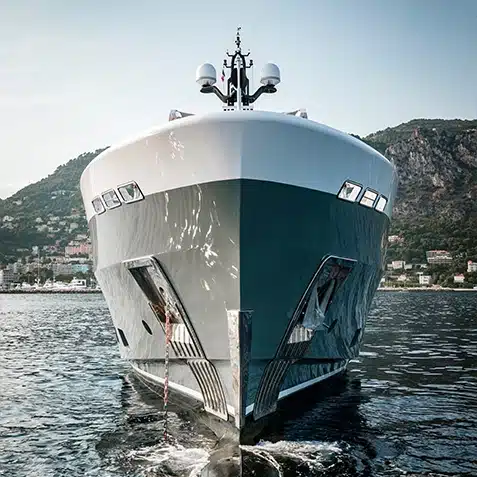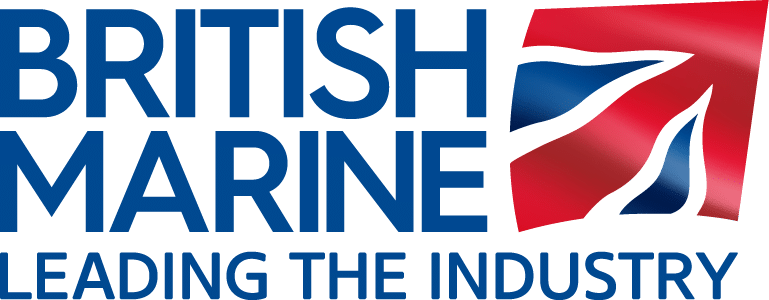Superyacht Owner’s Course
Diploma for Superyacht Owner’s Representatives
Superyacht Owner’s Representative
Maritime Training Academy’s Superyacht Owner’s Representatives Diploma delivers specialist training in managing high-value yacht operations, projects and client representation.
Designed for professionals supporting superyacht owners during build, refit or operational phases, this qualification builds the skills required to oversee crew, budgets, contractors and guest experiences with discretion and authority. Study online from anywhere in the world and gain insight into ownership structures, maritime law, logistics, emergency planning and stakeholder management.

International Yacht Owner’s Representative Qualification
Develop the operational and diplomatic skills required to represent owners during yacht builds, refits and operational cycles.
Contact us below to enrol today, or speak with our experienced course advisors.

Duration:
12 - 18 months
Learn at your own pace
Online Course:
Study from anywhere

Cost:
Diploma: £3,195
Certificate: £2,295

Recognised by: 
Superyacht Owner’s Representatives Diploma vs Certification
Choose the right path for your career:
Comprehensive Training: In project oversight, legal frameworks, ownership structures, budgeting, logistics, emergency response, and managing crew and contractors.
Flexible Study Duration: 12 – 18 month depending when you enrol to the program, study online at your own pace, from anywhere in the world.
Marine Industry Career Opportunities: 100% Online, with access to our student learning portal
Long-Term Career Impact: Owner’s Representative, Refit Liaison, Client Manager, Yacht Operations Supervisor, Newbuild Project Coordinator.
Global Recognition: Our Diplomas are recognised by the University of Portsmouth and are supported by industry associations.
Assignments: One assignment is required to be completed and submitted at the end of each module, based on that particular subject.
Certification: you will receive a PDF Digital certificate (Printed Certificate Completion Pack available).
Final Examination: There will be a final examination upon completing and submitting all student assignments (exams are sat in April or October).
Post-Nominal letters: On passing the Diploma you can also use these letters after your name: MTA Dip MC
Digital Course Badge: Upon successful completion students will receive an exclusive course badge for use on business cards, LinkedIn profiles and website(s)!
Diploma - £3,195
A globally recognised qualification for careers in superyacht project coordination, owner representation, refit supervision and UHNW client liaison.
✔
✔
✔
✔
✔
✔
✔
✔
✔
✔
Certificate - £2,295
Specialist Owner’s Representative Training without formal assessments, for those who do not require a recognised diploma.
✔
✔
✔
✔
✔
✔
Superyacht Owner’s Representatives Curriculum: 12 Modules
This course explores the unique responsibilities of owner’s representatives across the full lifecycle of superyacht operations. From newbuild and refit phases to ongoing crew, legal and financial oversight — you’ll gain the confidence to support UHNW clients and ensure operational success across all phases of ownership.
1. History of the Superyacht Industry and Where we are Today
The Superyacht Industry
Overview of the Industry
Historical Development
Regulations and Flag States
Superyacht Standards
Classification Societies and the role of Classification
Different levels of regulation
The role of the yacht manager
Industry Associations
2. The Role, Function and Requirements of a Superyacht Owners Representative
What is an Owners Representative
Understanding the role of the Owners Representative
High Net Worth Ind Ultra High Net Worth Individuals
Relationship Management
Communicating Effectively
Building trust
Integrity
Working structure
The family office
Internal politics
3. Budgets and Accounting
Budgets and accounting
Financial Policy
Book keeping
Accounting
Budgeting
Internal control
Charter accounting
Auditing
VAT
KYC and AML
Bribery Act
4. Crew Management
- Superyacht crew and shore support
- How superyacht sizes and use impact the crew
- The Maritime Labour Convention (MLC)
- Crew contracts
- Disciplinary procedures
- Recruitment
- Crew induction
- Career development
- Qualifications
- Practical management
5. Essential Law and the superyacht regulatory environment
Legal concepts
Introduction to English law
Criminal law
Civil law
The Law of Contract
Privity of Contract
Agency
Duties Under Contract
The Law of Tort (Negligence)
Negligence
Liability in Contract and Tort
Apportionment
Responsibilities
ProcedureMaritime law
Introduction
Admiralty Law and Jurisdiction
International Maritime Law
Shipboard Documentation
International Convention for the Safety of Life at Sea (SOLAS) Safety Certificates
Safety Certificates – Cargo Ships
Harmonised System of Survey and Certification (HSSC)
Tonnage Certificate
Codes of Practice for Commercially Operated Yachts
The Flag State
Nationality
Ownership
Certificate and Registration
Sale and Purchase
Collision and Salvage
Salvage
Chartering Commercially Operated Yachts
Voyage Charters
Time Charters
Owners’ (Mangers’ and/or Masters’) Obligations
Pilotage
Governmental Control of Shipping
Health and Safety Onboard Ship
Health and Safety Law
Civil and Criminal Liability
The Code of Safe Working Practices for Merchant Seafarers (COSWP) RegulationsTable of Cases
6. Travel and logistics
Introduction
Corporate Travel Policies
Itinerary
Booking Travel with an Agent
Travel Finance and Accounts
Traveller Profile Form
7. Ownership structures
- Introduction
- Companies
- Special Purpose Vehicles (SPVS)
- Corporate Service Providers (CSPS)
- Partnerships
- Ownership Structures
- Jurisdictions
- Trusts
- The Family Office
- Agreements and Contracts
- Value-Added Tax (VAT)
- Brexit and VAT
- Flag and Registration
- Finance and Insurance
- Anti-Money Laundering (AML)
- Costs
8. Emergency preparation and response
- An Introduction To Emergency Preparation and Response
- Preparation and Planning
- Communication
- Emergency Organisation
- Training and Drills
- Media
9. Project Management
- Basics of Project Management
- Starting – Beginning and Controlling A Project
- Understanding The Four Phases of A Project
- General Management of A Project
- The Basic Mechanisms Involved In Project Management
- Creating and Maintaining Schedules
- Managing The Team
- PM – Health and Safety Responsibilities
- Agile Project Management (APM)
- Why Successful Projects Can Fail
- Glossary of Terms and Phrases
10. Charter
- Role Of The Charter Manager
- Campaign
- Location
- Itinerary
- Charter Party Profile and Preferences
- Safety and Security
11. Destination Management
- Know Your Stuff
- Destination Research
- Sources of Information and The Importance of Being Correct
- Creating An Itinerary: Understand The Client, Giving That Something Extra
- Guest Activity Management
- The Influence of Weather
- The Importance of Planning
- Visas, Vaccinations and Permissions
- Managing Social Media and The Paparazzi For Either Privacy or Promotion
- Environmental Concerns
12. Managing Expectations
- Introduction
- Roles and Responsibilities
- Managing Expectations
- Communication
- Reporting
- Meetings and Feedback
- Quality Control and Assurance
- Preparation Guidelines
- References and Recommended Reading
Hear from our Students
Meet the Course Director
Ian Biles
Managing Director at Maritime Services International
Ian has led MSI to become one of the world’s leading surveying companies. Ian’s qualifications include: Master Mariner, RYA Yachtmaster Ocean, Naval Architect (BEng Ship Science) and Business Management (MA Business Management).
Over the years Ian has worked with several specialist marine security companies in some challenging environments experiencing firsthand what it is like to be on the receiving end of significant security threats.

Superyacht Owner’s Representative Course FAQs
Find out more about the course FAQs below.
How do I become a superyacht owner’s representative?
Start with a recognised qualification like this one from the MTA, that focuses on the skills needed to represent UHNW clients in yacht builds, refits and ongoing operations. Our diploma prepares you to manage crew, budgets, timelines and expectations in a high-value environment.
What qualification will I receive from this course?
You’ll earn a Diploma in Superyacht Owner’s Representation from the Maritime Training Academy, recognised by superyacht management companies and UHNW client support teams globally.
Is this course suitable for yacht managers or build project staff?
Yes. It’s designed for professionals involved in operations, refits, crew management or build projects looking to step into a dedicated owner liaison role.
How much can an owner’s representative earn?
Salaries vary significantly depending on role, experience and level of responsibility, but most representatives earn £60,000 to £120,000+ per year, with senior roles often project-based or consultancy-led.
Does the course cover legal, crew and project responsibilities?
Absolutely. You’ll study legal frameworks, emergency preparation, crewing, budget control, project liaison, logistics and the day-to-day responsibilities of representing a yacht owner.
Can I take this course without experience on a yacht or refit team?
Yes. While experience is beneficial, this course is suitable for those entering from operations, client services, project management or other maritime backgrounds.
See our FAQ page for more questions answered about MTA courses.
Supported by:

Why Choose The Maritime Training Academy?

Flexible
Online learning allows you to study in your own time, at your own pace from anywhere in the world. This saves on travel and classroom costs and allows you to fit your studies around your job and progress your career.

Supportive
While the nature of distance learning is independent study, we recognise the importance of support. Students can contact us at any time during their course for assistance and our team of industry experts are always on hand for advice.

Expertise
We have over 50 industry experts writing, developing and advising on our course material. We truly believe that allowing students to tap into their expertise and knowledge is of the utmost importance to fulfil your dream career.
If you would prefer to complete this as a classroom-based course, please contact us.
